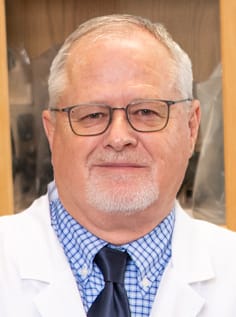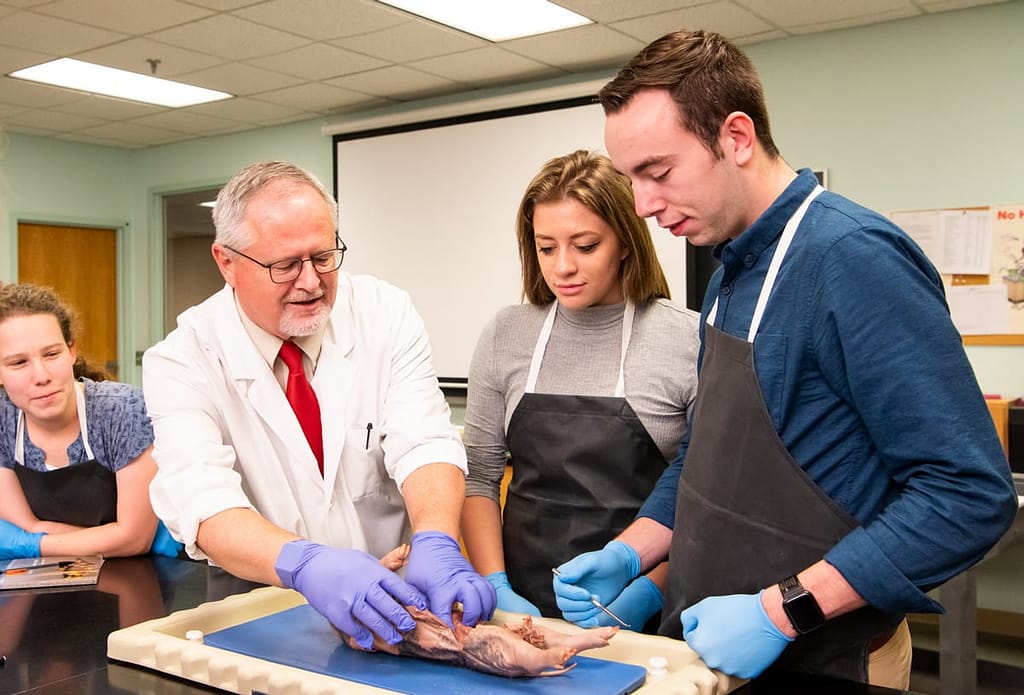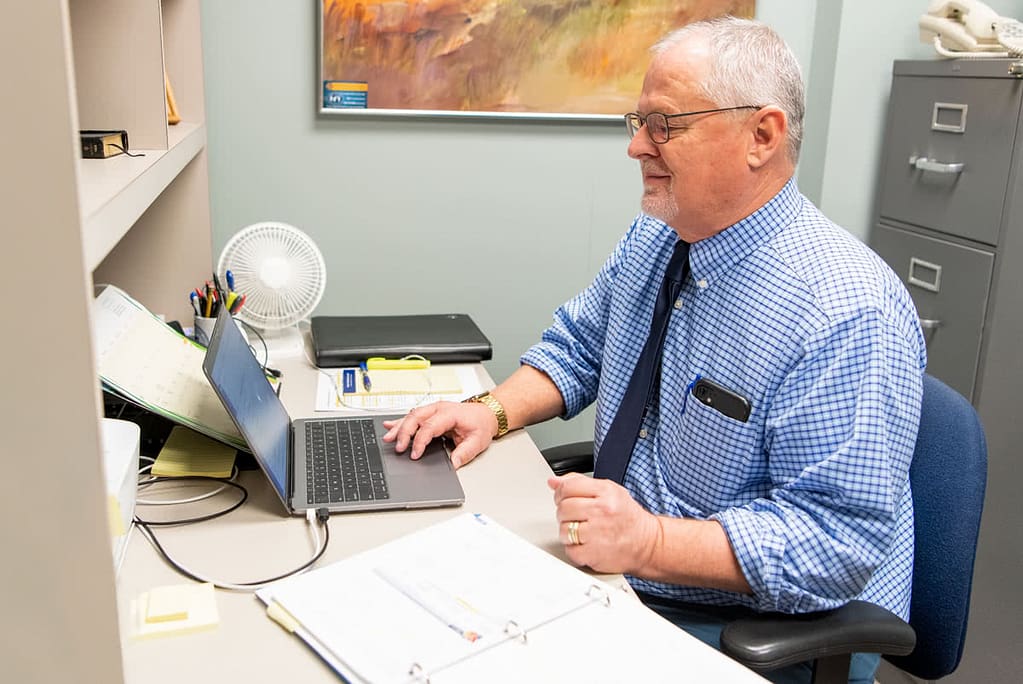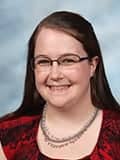
Dr. Wesley Robbins has a wide-ranging career in pharmacy and management that spans more than thirty years. Since retiring from the Department of Veteran Affairs (VA), he has been putting his expertise to use differently—teaching natural science courses at Pensacola Christian College.
Taking time after high school to work in carpentry and the United States Coast Guard, Dr. Robbins went through college as an older student, aiding his focus on his studies. After completing his internships and earning a doctorate in pharmacy, he began working full-time in the Department of Veteran Affairs, starting as a clinical pharmacist before transitioning into management positions that stretched to the Central Office in Washington, D.C. “I was national director for emergency pharmacy service for VA right after 9/11,” Dr. Robbins said. “I built stockpiles and set all that up and did a lot of meetings in D.C. as they were setting up Homeland Security.”
As he traveled to different VA hospital locations across the country, Dr. Robbins first learned of PCC during his time in Prescott, Arizona. A Proclaim Ministry Team visited his church, where the pastor’s children were students at PCC. It wasn’t until his eldest daughter, Shannon, began looking at colleges that they finally visited Florida to see what PCC was all about. “We drove from the Dallas area for College Days on Thanksgiving, and we were very impressed with just everything. The campus, student interactions, just the whole thing,” he recalled. “Everything was what we would’ve wanted for our girls for their college experience, and the Lord worked all that out.”
Eventually, all of Dr. Robbins’s daughters graduated from the College and began settling in the Pensacola area, but with him and his wife Kathy still in Dallas, Texas, the close-knit family found the separation difficult. Shannon, now a natural sciences faculty member, was the first to encourage her father to consider teaching at the College. “I remember hearing Dr. Shane Smith (dean of the Natural Sciences Department) mentioning needs in the pre-pharmacy program in a few of our department meetings. I thought it would be a good fit for Dad,” she said. “He was getting close to retirement from the VA, and he’s not the type of person who was ready to be out of the workforce entirely. Although he has not had any formal teaching education, he has always been a natural teacher. For as long as I can remember, he’s taught in some capacity at whatever church we attended while I was growing up. Those two things together made him an obvious asset to the natural sciences department.”
At the time, Dr. Wesley Robbins was the director of the Consolidated Mail Outpatient Pharmacy in Dallas, an operation that filled 50,000 prescriptions a day for the VA through the automated system. “I worked with a lot of very good people, but it wasn’t a Christian environment. When I retired, I was looking for some sort of ministry in a Christian environment, and this has been absolutely perfect for me,” he said. “There were several events [from my experiences] that pointed me in more of a leadership, shepherding, customer-service-type mindset. That mindset serves me well in the classroom because I’m shepherding the students along as they’re going through the material.”

Since starting in 2017, Dr. Robbins has taught various classes from Principles of Biology (BY 105) to Basics of Pharmacy Practice (SC 242) with students of many different science concentrations. “Just in Biochemistry (CH 306), there are chemistry and biology majors, pre-med majors, pre-pharmacy majors, and pre-physical therapy majors,” he said. “It’s a diverse group, and they’re coming to their studies from a little bit different point of view. You got to try to bring all that together for them. We have a talk about that on the first day of class—who all is there and why I’m taking the approach that I’m taking in the classroom.”

Having gone to secular colleges for his degrees, Dr. Robbins realized that learning about bias within the sciences was important, especially after struggling to keep testing material and God’s Word in the correct perspectives when he was a student. “I make a very big deal out of showing Christian perspective in the sciences as [the students] start. And I make sure that they know to be discerning with what they read,” he explained. “I point out things in the book saying, ‘Look what it says here. Is that a Christian worldview? The textbook is good in what it’s teaching you, but notice the bias of the authors.’”

While Dr. Robbins has enjoyed teaching and assisting his students in grasping new concepts, he and Kathy have also enjoyed being near their daughters and spending time with their grandchildren. “It has been great to be able to have my dad and mom live close to my family,” said Shannon Johnson. “It has also been neat to connect with my dad as a peer in the workplace. He shares his workplace wisdom as often as I need it, and I am able to help him navigate PCC culture, having been a student here. We are able to talk about specific situations and encourage each other, especially with all the changes that have taken place since COVID.”
Retirement might mean a time of rest for some, but for Dr. Wesley Robbins, retirement has meant being free to serve God and support his students in the best way he can. “Being able to live and enjoy your Christian faith with everyone that you work with is a joy,” he said. “It is also wonderful to share and hopefully help build the faith of those students that have never lived or worked daily in an openly Christian environment. PCC is undoubtedly a very unique place and it provides place for everyone here—not just the students—to live a life that the Lord has set out before us in His Word.”
Read more about how God is directing and working through PCC faculty and alumni.
